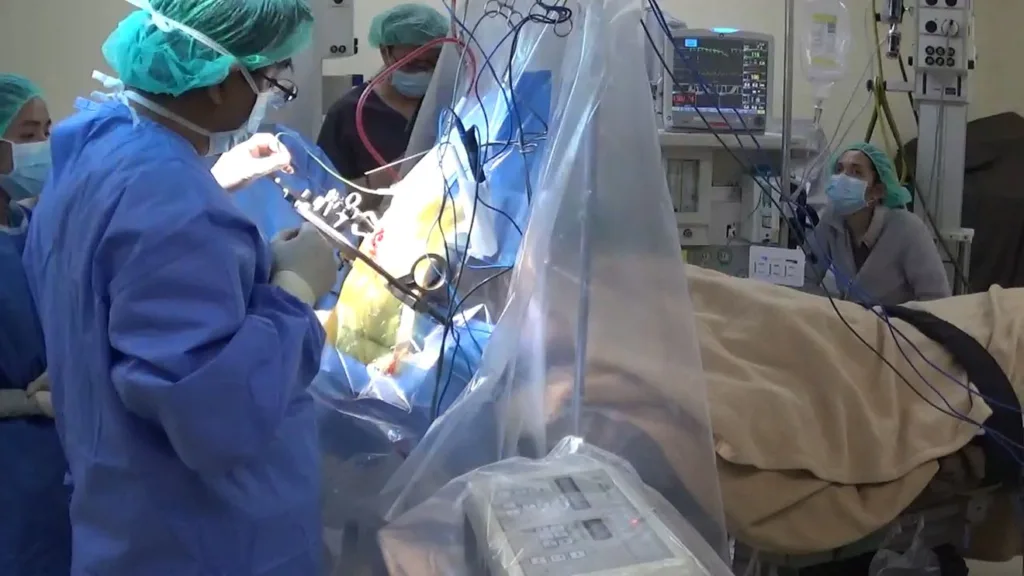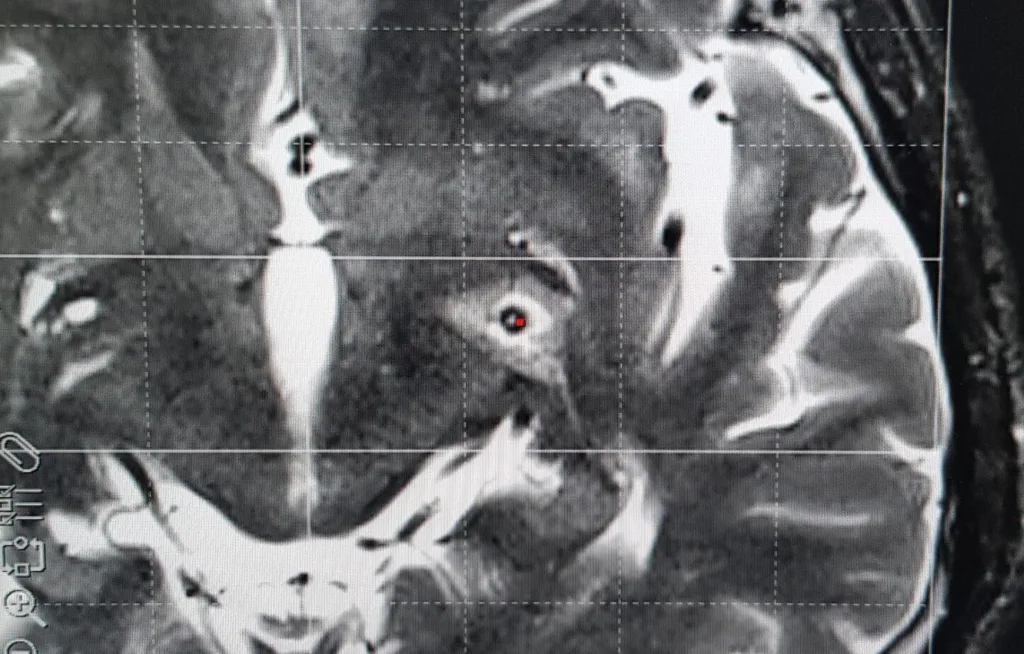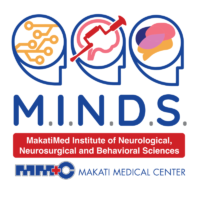Pallidotomy
What is Pallidotomy
Pallidotomy is an older, well-establiushed neurosurgical procedure where electrodes ablate or burn specific brain tissues involved in passing maladaptive brain signals which cause symptoms. It is a single shot, fast, safe procedure and does not involve expensive implants.
Typically, pallidotomy is performed on one side of the brain at a time to minimize complications. When necessary, the other side can be performed in a separate surgery 3-6 months afterwards.

For Parkinson's disease
The benefits of pallidotomy are well established for Parkinson’s disease. It can improve symptoms of tremor, rigidity, and bradykinesia. In some cases, pallidotomy can improve gait and balance and reduce the amount of levodopa people require, thus reducing drug-induced dyskinesias. While the absolute benefits are not as large, pallidotomy can provide up to 60-70% of the benefits of DBS.
Pallidotomy, while not the first line option for surgery, may be preferred for various reasons. It may be the better option in the elderly who live alone, or those who do not have the capability to maintain and recharge a DBS system. As a short, less-involved surgery, it is better for those who may have other medical conditions which complicate long surgeries and anesthesia. Similarly, for those contraindicated from DBS for reasons of cognitive function, psychiatric, or psychologic reasons. And finally, because of the vastly lower expense of surgery.
For Dystonia and X-linked Dystonia Parkinsonism (XDP)
Pallidotomy has been a long established surgical procedure for dystonia. Overshadowed somewhat by the rise of deep brain stimulation, pallidotomy still has excellent benefits without the expense of implants. The procedure is done unilaterally, with the other side performed if necessary after a certain period. The benefits are about 40% reduction of severity of symptoms on the affected side.
Pallidotomy can also be performed as a rescue procedure, giving benefits while awaiting DBS ata future date. A pallidotomy does not contraindicate having DBS in the future. This is especially useful for those who are especially delibitated, or health and nutrition affected by swallowing and repeated micro-aspiration.



